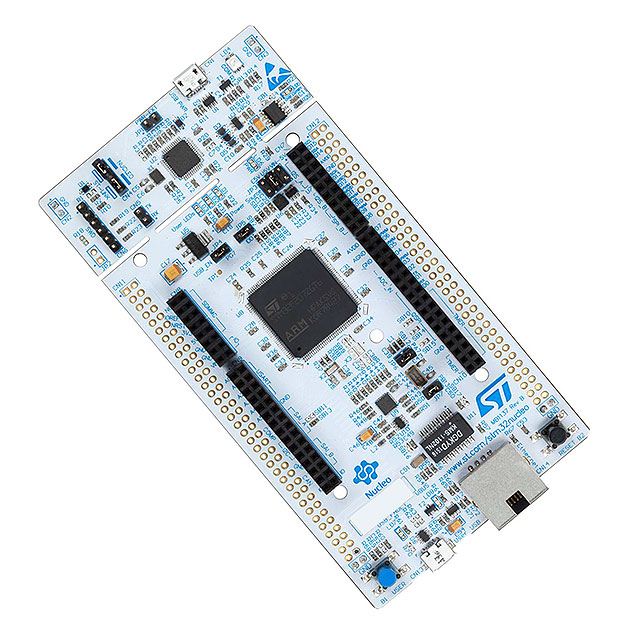
NUCLEO-F207ZG
ActiveSTM32 NUCLEO-144 DEVELOPMENT BOARD WITH STM32F207ZG MCU, SUPPORTS ARDUINO, ST ZIO AND MORPHO CONNECTIVITY
Deep-Dive with AI
Search across all available documentation for this part.

NUCLEO-F207ZG
ActiveSTM32 NUCLEO-144 DEVELOPMENT BOARD WITH STM32F207ZG MCU, SUPPORTS ARDUINO, ST ZIO AND MORPHO CONNECTIVITY
Deep-Dive with AI
Technical Specifications
Parameters and characteristics for this part
| Specification | NUCLEO-F207ZG |
|---|---|
| Board Type | Evaluation Platform |
| Contents | Board(s) |
| Core Processor | ARM® Cortex®-M3 |
| Interconnect System | ST Zio, Arduino R3 Shield, ST Morpho |
| Mounting Type | Fixed |
| Platform | Nucleo-144 |
| Suggested Programming Environment | STM32Cube, Keil MDK, IAR EW |
| Type | MCU 32-Bit |
| Utilized IC / Part | STM32F207 |
Pricing
Prices provided here are for design reference only. For realtime values and availability, please visit the distributors directly
| Distributor | Package | Quantity | $ | |
|---|---|---|---|---|
| Digikey | Bulk | 1 | $ 24.47 | |
Description
General part information
NUCLEO-F207ZG Series
The STM32F20x family is based on the high-performance Arm®Cortex®-M3 32-bit RISC core operating at a frequency of up to 120 MHz. The family incorporates high-speed embedded memories (Flash memory up to 1 Mbyte, up to 128 Kbytes of system SRAM), up to 4 Kbytes of backup SRAM, and an extensive range of enhanced I/Os and peripherals connected to two APB buses, three AHB buses and a 32-bit multi-AHB bus matrix.
The devices also feature an adaptive real-time memory accelerator (ART Accelerator™) that allows to achieve a performance equivalent to 0 wait state program execution from Flash memory at a CPU frequency up to 120 MHz. This performance has been validated using the CoreMark®benchmark.
All devices offer three 12-bit ADCs, two DACs, a low-power RTC, twelve general-purpose 16-bit timers including two PWM timers for motor control, two general-purpose 32-bit timers. a true number random generator (RNG). They also feature standard and advanced communication interfaces. New advanced peripherals include an SDIO, an enhanced flexible static memory control (FSMC) interface (for devices offered in packages of 100 pins and more), and a camera interface for CMOS sensors. The devices also feature standard peripherals.


